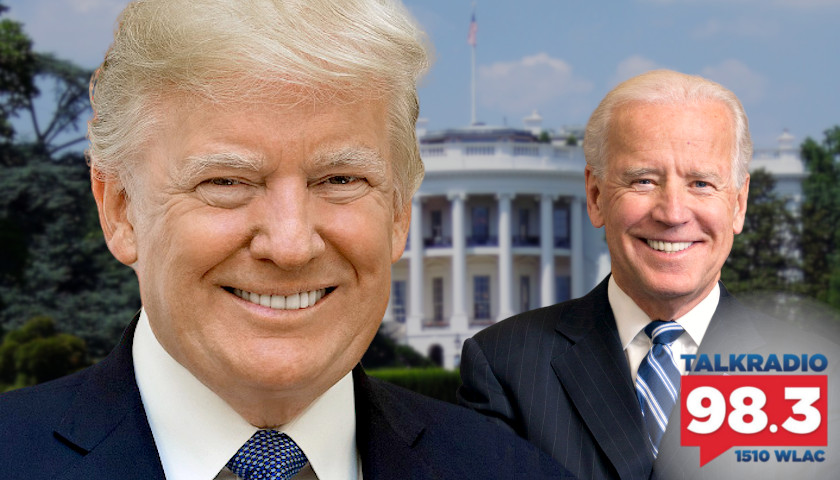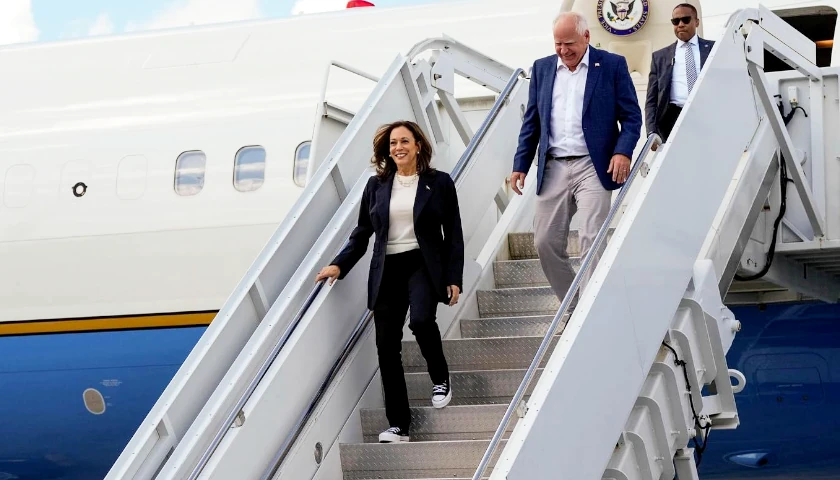Public affairs strategist and all-star panelist Clint Brewer joined The Tennessee Star Report with Michael Patrick Leahy – broadcast on Nashville’s Talk Radio 98.3 and 1510 WLAC weekdays from 5:00 a.m. to 8:00 a.m. – Wednesday morning on the newsmakers line.
During the second hour, Brewer analyzed Trump’s recent press conference briefing suggesting that he be more conscious of his language with a November election on the horizon. He noted that this election will be the first of its kind in the midst of a pandemic and will serve as a referendum for the people.
Leahy: We are talking with our good friend and all-star panelist Clint Brewer. I have a couple of questions that I want to ask you about. Have you followed this constitutional back in forth federalism between the president and the states of who can open up the country? Is it the president? Is it the governor? Or is it some combination thereof.
Brewer: I mean I’m fairly conservative person Mike, (Chuckles) I’m going to probably default on the side of state’s right in most cases. I think a very unfortunate verbal misstep by the president in the press conference kind of flies in the face of a lot of very well accepted conservative principles.
The President of the United States does not have total power. The president walked that back a little bit is my understanding the next day. States have the right to do what they’re doing. The federal government can’t force the re-opening of the economy. I think the president needs to be a little circumspect in his language.
Leahy: Yeah. The thing is about the president is if you don’t like something he says one day (Laughs) wait till the next day. He kind of went on the edge of that constitutional federalism conflict yesterday and he did totally walk it back yesterday I thought. But we’ll see. We’ll see how that all works out. Clearly he wants to pressure governors that are reticent to re-open. I think he wants to pressure a lot of those states to begin re-opening. That’s my take on it.
Brewer: I think you are right but you can’t. You can pressure them but you can’t force them. We talked about this I believe last week. We’re going to have an election in November and the president needs to remember that. In the UK, leaders there are getting a bump for their handling of the crisis.
I just think that in western democracies thinking things can turn on a dime in terms of public opinion. And if we get into the fall and the economy is still in the toilet and people are still getting sick the November election is going to be a referendum on the president’s handling on this.
Leahy: Absolutely. Absolutely.
Brewer: There’s a lot of time between now and November.
Leahy: A lot! Can you imagine back in the impeachment vote was back in early February? It seems like a decade ago.
Brewer: Oh. Yeah. Your comment about, hey we’ll still having an election last week, I’ve been tuning back into that and I checked Real Clear Politics for their poll aggregator. Even Fox News’s poll has the president and Biden running head to head in a match-up. The president needs to remember he’s got to run again and its a very different environment than he ran the last time. It’s a different environment than anybody’s ever run in history.
Leahy: Ever in American history. Let me switch gears here on the issue of public policy. You’ve worked in state government.
Brewer: Yes.
Leahy: And one of the things that I’ve noticed and I want to talk to you about this, it seems to me when we look at how to re-open. I’ve been following very carefully a bunch of scientists that say until we have a vaccine to re-open the economy is to follow a policy that says test, trace, isolate. In other words, massively increase our testing on this for those who test positive and isolate them. And then do contact tracing.
Which has been the way we’ve handled tuberculosis for 100 years. Find out who’s tested positive and who’ve they’ve talked to. Test them, and then isolate them. To me, that seems to make an awful lot of sense. The problem I see is that I don’t see state or local governments who are cash strapped to begin with, I don’t see them making the moves necessary to increase funding for these tests and to hire the public health workers to do the contact tracing.
If I were to come to you and you were in your previous positions or an adviser to a governor and said we need to do this. And you would say, yes we need to do this. How would you go about doing it given the budget constraints we have right now?
Brewer: Let’s talk about that at a local level and then at a national level. Tennessee is fiscally one of the best run states in the country. We carry very little debt. We have one of the lowest debt per capita rates in the country for our citizens. Our tax structure is incredibly low and our cash reserves are healthy.
We have great stewardship by legislators and our governors. So we are not necessarily in the same position that a lot of states are. You bring up a good point. I think we’re going to have bandwidth here. How do you create a class of workers that don’t exist? How do you create an infrastructure that doesn’t exist? This brings back the state and federal question from a few minutes ago.
States can’t really rely on the federal government to stand those things up. I think there has got to be a real public/private partnership wealth with healthcare companies and community colleges which we’re fantastic here in this state to create that working-class of healthcare workers to address this pandemic specifically.
Do all the things you are talking about. Our state has a great approach to this when you locate an employer somewhere and they may need more workforce there’s usually a good partnership between the state department of labor and the state department of economic development, the governor’s office and the legislature to help community colleges create specific programs in geographical areas to feed employers people who are trained and ready to work in that industry.
They’ve done it in the auto industry for years. They do particularly well in rural locations in the state. We’ve got a model here that has worked for the private sector. I think here in Tennessee we’ve got to reverse that and do what you’re saying. I think the model that you are talking about is a sort of South Korea model…
Leahy: Yes.
Brewer: …Which seems to be pretty successful. I think what you heard the governor here talk about was ramping up testing and have a real focus on data and science. And we’ve been one of the states per capita testing the most of any state out there.
Leahy: We are about 16th out of 50. Which is OK but I would see that this needs to be quintupled or increased by a factor of 10 as soon as possible. Of course, here we probably need about 10,000 contract tracers. They have to be trained. They have to be out there. I know as an example of how not to do it in my view. This authoritarian health director in Ohio wants to have a volunteer workforce to do it. I can’t think of a worse idea. Volunteers?
Brewer: I think there can be some of that. But you’ve got to have trained health professionals sort of making sure there’s a certain chain of custody…
Leahy: Exactly!
Brewer: …That a test has to have. You could use volunteers but I don’t think you could use them exclusively. Remember, Tennessee is sort of the capital of healthcare administration.
Leahy: Hey Clint Brewer, thanks. You’ll be back with us Friday at six o’clock.
Brewer: Thank you.
Listen to the second hour here:
– – –
Tune in weekdays from 5:00 – 8:00 a.m. to the Tennessee Star Report with Michael Patrick Leahy on Talk Radio 98.3 FM WLAC 1510. Listen online at iHeart Radio.





